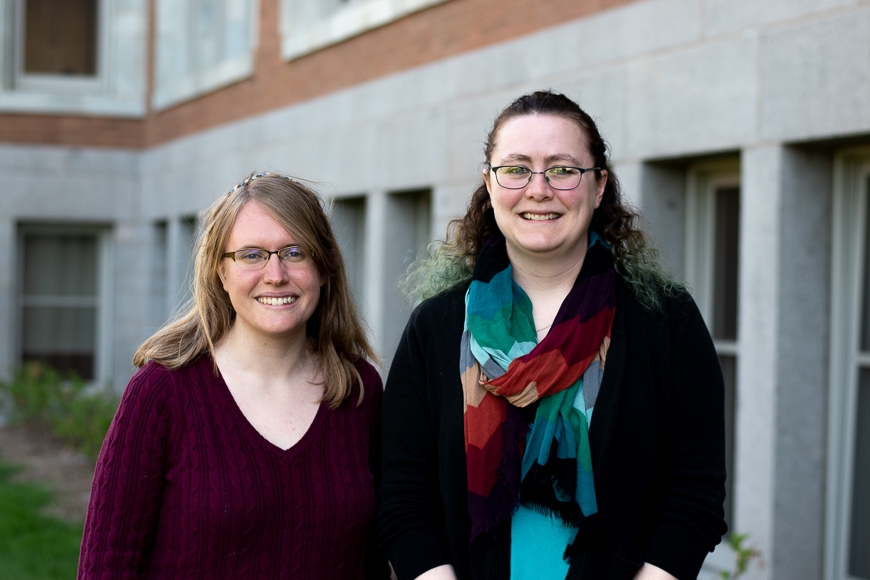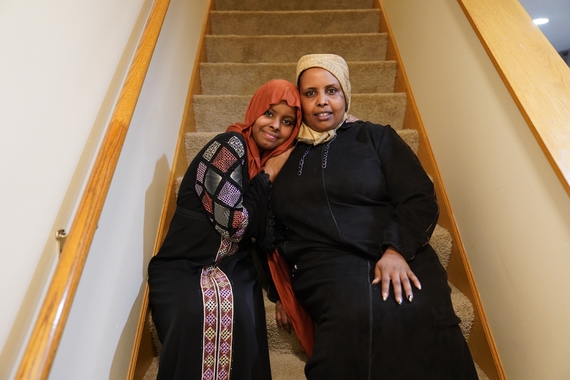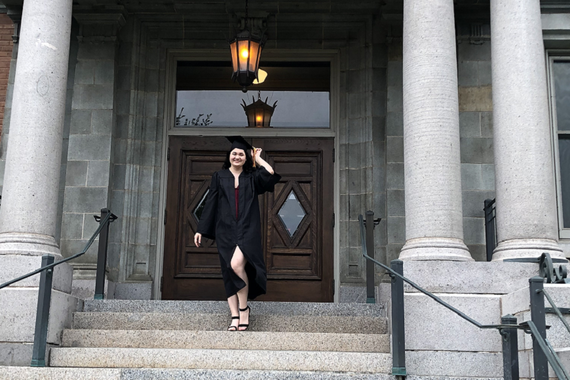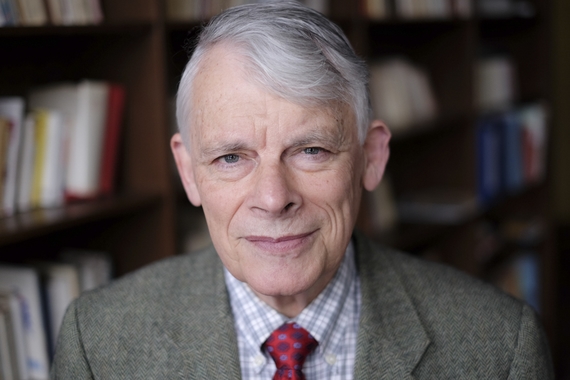The Mears Fellowship: A Tradition of Outreach
Hella Lindemeyer Mears was a German-born philanthropist dedicated to preserving German and European studies education in Minnesota. The departmental fellowships in her name started in 2003-04. Now Mears’ legacy continues through the support she ensured for research on a wide variety of projects on German and European topics.
To date, 32 fellows have received funding and balanced their research with outreach work. Each year two graduate students in Germanic studies are awarded Mears fellowships and tasked with advocating for German education across the state, largely in coordination with College in Schools (CIS) German classes. By speaking with CIS students, the fellows encourage high schoolers to continue their German studies. Additionally, CIS students who plan on attending the University, and who intend on declaring a German major by December of their freshman year, can apply for a four-year scholarship offered by the GNSD department.
Outreach to High Schoolers
The 2018-19 academic year boasted three Mears fellows: Emily Groepper, who served for the full year, and Zizanie Bodene-Yost and Jenn Carnell, who each served for one semester. Together these three scholars have created unique and captivating presentations on topics that range from the history of the Berlin Palace to the study of medieval German manuscripts. Groepper explains the purpose of such in-class engagement: “We show the students different types of opportunities available through studying German and encourage them to continue using their German language abilities beyond high school.”
The fellowship allows advanced graduate students in German studies to share their interests with less-experienced students in a meaningful way. For Carnell, whose graduate studies revolve around medieval German, a highlight of the experience was bringing that topic into the high school classroom. “German and English are cousin languages, and I love learning about how they’ve differentiated and stayed the same,” she explains. “Learning the medieval forms of both languages helps me make those connections.” While teaching a CIS course this spring, she was able to guide students through reading a medieval text. “The students saw the fancy script and the older, more irregular spellings and immediately responded, ‘I can’t read that,’” she says. “But invariably, every class could read the text by the tenth word or so. It was amazing to see them get over the initial barrier and realize that they can read older forms of language.”
CIS teacher Amanda Stenberg of Mora High School observed the resurgence of energy in her German learners following a visit by the fellows: “Up in the cold tundra that is Mora, we love having the Mears fellows visit us! They always seem to be able to plan a visit during the long lonely winter, enlivening our class and waking my students up.”
Having a Field Day
Ginny Steinhagen is the CIS faculty coordinator for German, which means she is in charge of establishing and maintaining relations with Minnesota high school German programs. She has witnessed the success that the Mears fellows have had with high school students, regardless of their skill level. The classroom visits are a staple of the fellowship, but they are not the only thing that keeps the fellows busy.
Twice a year, CIS students visit the University of Minnesota Twin Cities campus for a comprehensive day of German activities. They attend presentations on a variety of topics, participate in small-group discussions led by local German-speaking professionals, and discover from undergraduate question-and-answer panels how German can work with different majors and careers.
The field day provides a space for high school students to engage with people who use German daily in their career. Each spring features a competition in which students are challenged to produce videos on the topics covered in their CIS courses. Steinhagen confirms that the video contest has stood the test of time. “It's interesting how much it's changed over the years,” she says. “We used to have video cassettes, and I always said if it doesn't play please don't be angry at me; we're doing the best we can with the technology. Now we work from a playlist on YouTube, and next year we are moving to online judging for the ‘Oskar’ and other prizes.”
Reconceptualizing the Value of Language
Now that the GNSD department has kicked off a ten-year writing initiative that it hopes will transform how students learn to write in a foreign language, there will be more for the Mears fellows to talk about when it comes to describing how those skills relate to communicating in our global world. Applying analytical writing skills to learning German gives students more freedom to express their thoughts and opinions, even if they haven’t yet attained fluency. On campus, Steinhagen works diligently to prove to her students that German is extremely applicable. “I want everyone in my class to feel like they’re there for a reason—for studying German that goes beyond the language requirement,” she says. “I really want them to feel like, ‘I’m getting something out of this that’s helping me.’” That message will carry into the work of the Mears fellows next year as well.
The vision of Hella Mears lives on through the efforts of the fellows and the impact they have on students across Minnesota. “In every classroom, from rural areas to inner-city schools, we encountered students who had never perceived college as a viable option for them,” observes past fellow Maria Hofmann. “The thought that our presence there, showing how they might already have a head start on college credits, was one of the most rewarding aspects of my experience as a Mears fellow.”
This story was written by an undergraduate student in CLAgency. Meet the team.



